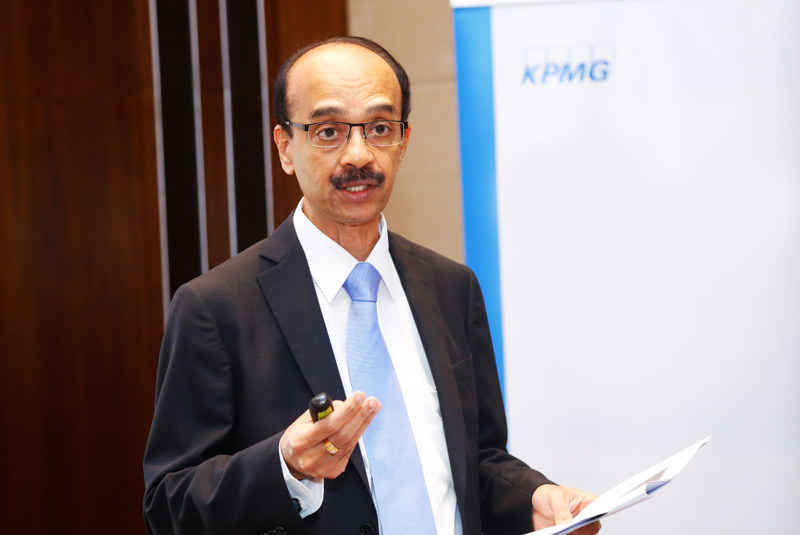

With just months to go before the much-bandied roll-out of Value Added Tax (VAT) and potentially even Excise Tax become a reality in the Sultanate, local businesses are fretting over the continuing lack of clarity with regard to the scope, nitty-gritty and regulations governing these key tax initiatives ahead of their rollout next year.
At a Business Summit held in the city on Monday, a leading tax expert lamented that continuing ambiguity over the specifics and guidelines covering the implementation of VAT and Excise Tax is an issue of concern for businesses in the Sultanate.
“I don’t thing taxes per se are a problem, it’s the uncertainty that’s a greater problem,” said Ashok Hariharan (pictured), Partner & Head of Tax — KPMG in Lower Gulf.
Participating in a panel discussion, Hariharan stressed the need for authorities to take the corporate sector into “confidence” by disseminating more information on upcoming revenue generating initiatives planned by the government.
Value Added Tax (VAT), for example, envisioned for implementation across the GCC bloc in 2018, will be introduced in Saudi Arabia and the United Arab Emirates (UAE) with effect from January 1, 2018. Likewise, Excise Tax — also known as ‘Sin Tax’ on harmful consumption — is already in force in Saudi Arabia, while the UAE implemented this new tax with effect from October 1, 2017.
“Businesses here are asking the question: Is Excise Tax coming? When is it coming? What are the rules going to be?” Hariharan observed. The issue is particularly worrisome in the context of the planned implementation of VAT in the Sultanate, the tax expert noted. “VAT requires changes to processes and systems,” said Hariharan. “Businesses need to be taken into confidence, they need to be given sufficient time. In my view, businesses should be given at least 18 months’ time to be ready. For this to happen, (authorities) need to share the law…” he stated.
Additionally, any surprises in the introduction of tax measures tend to create a “shock” in the market, Hariharan stressed. He cited in this regard the inclusion of a provision, without any advance warning, that expanded the scope of ‘withholding tax’ in the Amended Income Tax Law issued in February this year. The amendment makes it mandatory for businesses to deduct 10 per cent as withholding tax on certain payments made to foreign companies, be it services, interest payments, dividends, and so.
“What surprises businesses and creates a dampener is anything that is announced all of a sudden, which tends to create a shock.”
Commenting on the impact to government revenue of the revised corporate income tax, which was increased from 12 to 15 per cent, the expert said: “The amended corporate tax is unlikely to increase revenues for the government for the simple reason that the profitability of the corporate sector has declined or is expected to decline. So by raising the rate of tax from 12 to 15 per cent, it will only maintain the existing level of revenue from this tax.”
Conrad Prabhu
Oman Observer is now on the WhatsApp channel. Click here



